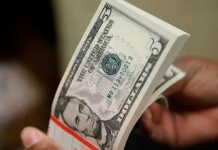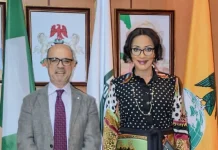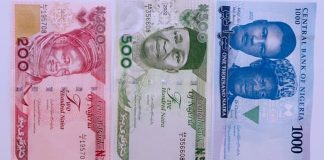- S.Korea envoy says Trump ready to meet N.Korean leader by May
- Trump grants tariff exemption to Mexico, Canada
- BOJ keeps monetary policy unchanged as expected
- Traders await U.S. payrolls data (Updates prices, adds BOJ keeping policy steady)
SINGAPORE, March 9 (Reuters) – The dollar rose versus the safe haven yen on Friday as hopes of a breakthrough in the North Korean nuclear standoff rose after U.S. President Donald Trump showed willingness to accept an invitation to meet North Korean leader Kim Jong Un by May.
A South Korean envoy said in Washington that Trump expressed willingness, and that Kim had expressed commitment to denuclearisation.
“Both the Nikkei and dollar/yen are rocketing higher on encouraging North Korea headlines and improving risk sentiment,” Stephen Innes, head of trading in Asia-Pacific for Oanda in Singapore, said in a note.
“We should expect this news to boost regional market sentiment as well,” he added.
Against the yen, the dollar rose 0.4 percent to 106.66 yen , inching away from a low of 105.24 yen on March 2, the greenback’s weakest level since November 2016.
Japan’s Nikkei share average shot up early in the session, advancing 2.4 percent on news of a possible U.S.-North Korea summit, then cooled to be 0.9 percent higher.
The greenback had gained ground earlier against the yen as some fears of a global trade war receded. Trump imposed import tariffs on steel and aluminium, while softening his stance by announcing exemptions for Canada and Mexico, and leaving open the chance for other countries to obtain their own.
“There are a lot of potential exemptions, so I think safe haven flows into the yen have abated,” said Roy Teo, investment strategist for LGT Bank in Singapore.
The U.S. dollar had tumbled to 16-month lows against the safe-haven yen late last week as concerns about a trade war gripped markets after Trump initially announced his plan for tariffs on all imports of steel and aluminium.
The euro nursed its losses after falling on Thursday as European Central Bank President Mario Draghi, while acknowledging faster growth in Europe, said regional inflation remained subdued and rising protectionism is a risk.
Draghi expressed his view on these issues at his news conference after a central bank policy meeting. It overshadowed the ECB’s dropping of a long-standing pledge to increase its bond purchases if needed, a move that briefly spurred buying of the single currency.
The euro held steady at $1.2310, after falling 0.8 percent on Thursday.
The yen showed little reaction after the Bank of Japan kept its monetary policy steady on Friday, as widely expected
Source: Reuters













